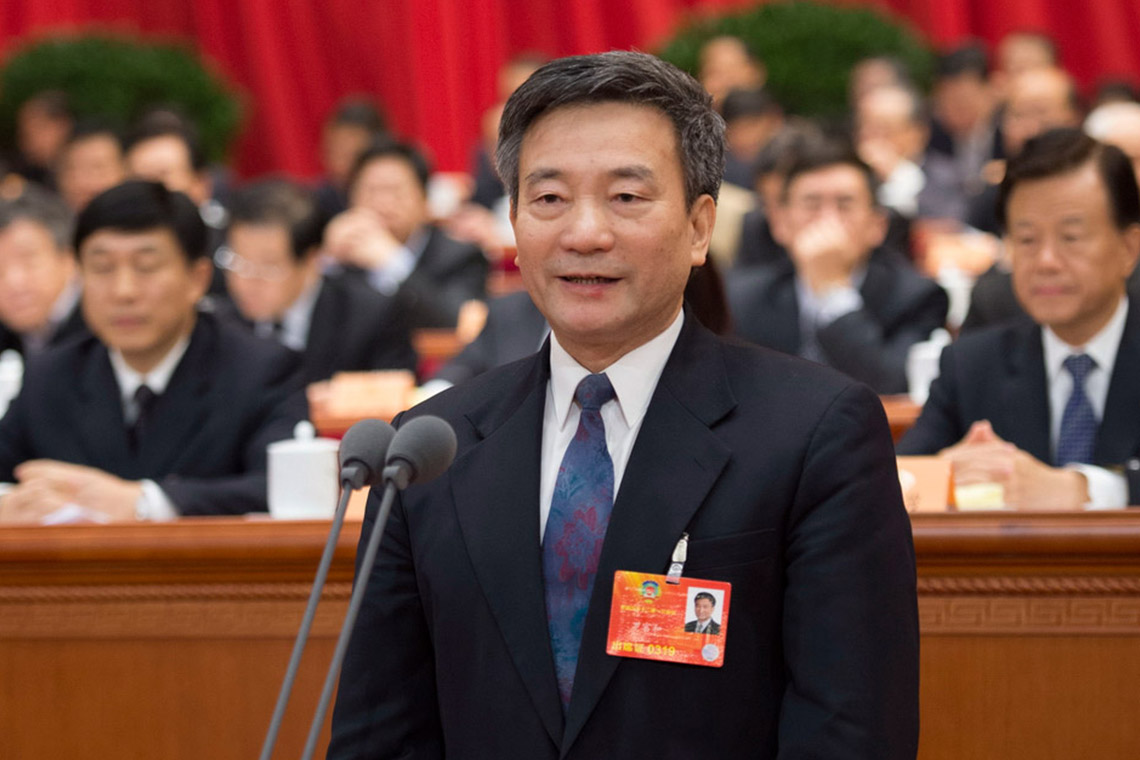A chat with the man who wants to bring the web back to China
A brief interview with the Chinese official who proposed that China relax restrictions on the internet.

The Beijing Conference Center is located rather far away from the rest of its titular city for such a name: It’s just inside the North Fifth Ring Road, and the nearest subway station is a two-kilometer walk away. Last Saturday, I made the trek away from central Beijing, where I’ve been reporting on the Two Sessions by attending press events at the Great Hall of the People on the west side of Tiananmen Square. But not all the events of China’s high season of politics take place downtown: The Beijing Conference Center was hosting a meeting of the CAPD, or China Association for Promoting Democracy (中国民主促进会 zhōngguó mínzhǔ cùjìn huì).
The CAPD is one of China’s eight “minor parties” that allow the country to call itself a multiparty state. Their main role is to participate in the Chinese People’s Political Consultative Conference (CPPCC), the advisory body whose meetings comprise one of the Two Sessions. The event I’d come to attend was a small group discussion on the government work report that had been delivered by Premier Li Keqiang at the start of the Two Sessions. But I wasn’t interested in Li’s report: I wanted to meet one of the CAPD delegates who made news on the first day of the delegation last week by calling for China to relax internet censorship. The bold announcement — titled “Proposal to Improve and Increase Speed of Access to Foreign Websites” — came from Luo Fuhe 罗富和, the chairman of the CAPD Guangdong Committee and vice-chairman of the National Committee of the CPPCC.
After enduring a rather lengthy discussion of the premier’s work report, I convinced Luo to speak with me after the main meeting. Luo was amiable, joking around with other delegates during the official discussion, and even patting me on the knee when I talked to him afterward. He was wearing a “Xi jacket,” the simple black garment that has become popular with officials looking to emulate President Xi Jinping. But unlike most of the anodyne statements made by officials during the Two Sessions, Luo’s internet proposal created a small media storm.
While many observers believe that China will only tighten its grip on the internet, Luo believes that the Chinese government has arrived at a position of stability where it can begin to pull back on censorship of “nonsensitive” web content. He pointed out that many nonpolitical websites have gotten snared in Beijing’s digital dragnet, saying, “The great majority of websites involve, for example, natural science, ordinary life in society, and many other aspects.”
China’s draconian system of internet restrictions is known as the Great Firewall, or GFW, or, simply, “the wall.” A scientist by training, Luo emphasizes in his proposal the negative impact the wall has had on scientific research. He points to cases of scientists and researchers who resort to virtual private networks, or VPNs, and other software to “leap the wall.” (He says he has never used them himself.) Some scientists, Luo says, even travel to exotic censorship-free areas like Hong Kong in order to carry out their work. It’s “not normal,” he said.
Instead, he recommends instituting a “negative list” of foreign websites in three categories: “unsuitable” sites that are always blocked; nonpolitical sites, including those frequented by academics, that would be accessible but occasionally monitored; and “neutral” websites, such as search engines, that would be largely accessible with the exception of “sensitive” information.
His proposal did not only address the Great Firewall, it also considered internet speed, and recommended adding international-grade internet bandwidth by encouraging telecommunications operators to focus more on increasing internet speeds for computers (as opposed to just mobile networks).
I asked Luo how likely his proposal was to be implemented. He said that his first priority was strengthening online security. He singled out for praise the real name registration system (实名制 shímíngzhì), which requires users to register mobile phone and online accounts with their real names.
As for why he was “full of confidence,” as he put it, that his proposal to relax internet restrictions might be implemented, Luo directed attention to the premier’s work report. In there, he said, “there is a requirement for increasing speeds and lowering prices…. I think increasing speeds includes our internet speed domestically, and the speed of visiting foreign sites.”
His confidence may be misplaced. Many of the online articles and social media comments generated by his proposal have disappeared from the Chinese internet. And, according to China Digital Times, a censorship directive has recently been circulated: “All websites, please find and delete reports and posts on Luo Fuhe’s ‘Proposal to Improve and Increase Speed of Access to Foreign Websites’ as soon as possible.”





